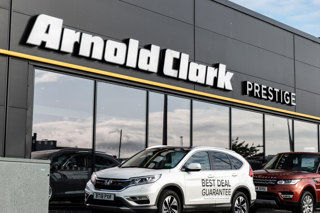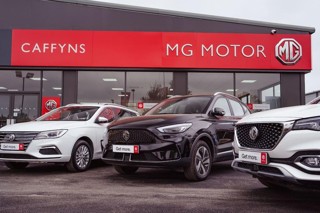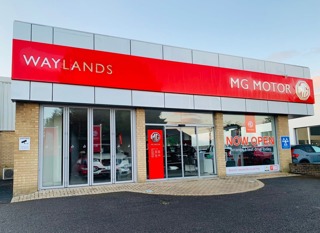COVID-19 disruption wiped out almost £10 million operating profit at Pendragon’s franchised dealerships before the end of March, a trading statement today reveals.
Underlying operating profit at Pendragon’s franchised motor division, which includes the brands Stratstone and Evans Halshaw, was £4.4m, a decline of £4.7m versus Q1 2019.
Its Car Store division of used car supermarkets, which was radically rationalised in 2019, reduced operating losses from £7m in Q1 2019 to £1m in Q1 2020 and improved gross margin from 7.4% to 8.0%.
Overall the slowdown in Q1 trading due to the effects of the coronavirus pandemic impacted Pendragon’s entire underlying profit before tax by about £10m, it said, and it has recorded a Q1 loss before tax of £2.3m for the quarter, which was a £0.5m improvement on Q1 2019.
The statement to London Stock Exchange hints at frustration as it notes Pendragon’s performance in January and February had been “encouraging, and demonstrated a continuation of the improving trend from the second half of 2019”, plus March trading had got off to a strong start. By the end of February underlying profit before tax had improved year-on-year by £5.1m, it said.
Its showrooms have remained closed since March 23 when the UK Government ordered all non-essential retail outlets to close. However since April Pendragon has taken 3,610 customer orders online or by phone, and completed 1,187 car deliveries to buyers’ homes.
“Whilst this volume is still significantly below normal levels, there has been an increasing daily trend in order numbers in used car sales in particular,” said its statement. And having initially reopened 20 service centres to maintain key workers’ vehicles, it now has 125 workshops in operation with around 20% of technician capacity.
“I would like to take this opportunity to recognise the way in which our associates have responded to the challenges posed by the COVID-19 pandemic and to thank them for working to keep key workers on the move over the past two months,” said chief executive Bill Berman.
He said the actions his team had taken in the second half of 2019 to reduce used stock levels and address costs had resulted in increased profitability despite the pandemic’s impact.
The commercial consequences of a full lockdown have obviously affected the business, but we moved quickly to implement a broad range of actions to mitigate the enforced closure, and I am confident that we will emerge in a strong position as the current restrictions ease.
“We are now preparing to reopen from 1 June and will therefore have the capabilities in place to meet the full needs of our customers across new, used and aftersales, as well as driving our “We come to you” online offer.”
Measures taken to protect cashflow have included used of the furlough scheme for almost 80% of Pendragon’s workforce, business rates holidays and VAT deferrals, and directors and senior managers have voluntarily reduced their pay substantially during the lockdown.
All non-essential capital expenditure, such as CI updates, has been paused, and all expenditure has been reviewed. Stakeholders, including carmakers and stocking loan providers, have also provided support measures.
Bank net debt as at 20 May 2020 was £100.5m (31 December 2019 : £119.7m, 24 March 2020: £105m) against a total facility of £235m.
In 2019 Pendragon recorded a loss of £117m after the business was left leader-less following the retirement of Trevor Finn and an aborted employment of Mark Herbert as his replacement.
Berman, a veteran US motor retail leader who had headed AutoNation, America's largest dealer group, initially joined Pendragon's board last year as a non-executive director but became its executive chairman in October and was appointed chief executive in February, with a plan to rebuild profits.






















Login to comment
Comments
No comments have been made yet.